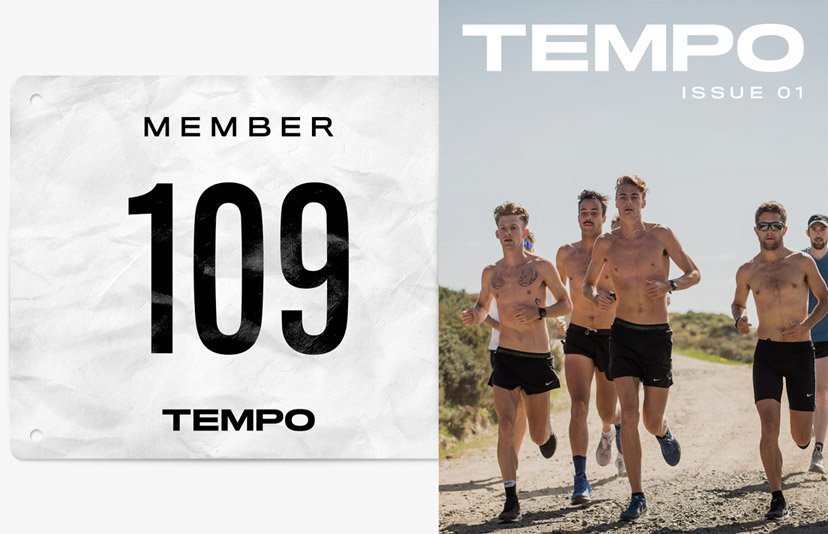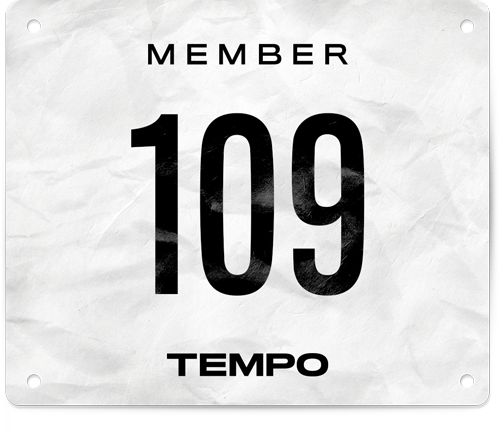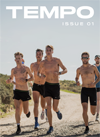Lifestyle
Out and Back
Growing up queer and fast in Chicago
My family nickname is “Flaco,” or “Skinny.” It never was a particularly great source of strength as a kid, especially as it became more and more clear my desires were not akin to those of your typical Colombian boy. As early as four years old, though not yet having the vocabulary to describe it, I knew my body and its inclinations were not the same as those of people I perceived as powerful. I was not macho, nor good at Futbol, and had no inclinations to objectifying the bodies of the women in ads selling my uncles and their friends beer. With all of this in mind, the infatuation I would come to have for running seems almost an inevitability. That being said, of the many reasons I started running, one of the most certain was to impress a girl.
As a budding homosexual having just moved from a heavily Latinated city in New Jersey to a Polish-majority suburb in the southside of Chicago, I very immediately became the only one of me for many blocks around. In came a girl from my honors’ pre-algebra class who radiated confidence and was known for being a runner. Looking back at it now, what attracted me most was the inherent power this girl seemed to command because of her ability to run.
Seventh-grade-Daniel did not want to be known for being the new kid, or the brown immigrant, or for forgetting to wear a uniform on the first day of school. Maybe, just maybe, if people could know me for being a runner they would not be given the time to know me for being gay. It was my own internalized homophobia that prevented me from equating queerness with power, but seventh-grade-Daniel was just trying to survive and so after class, he went to Marshall’s, bought a matching tracksuit ala Missy Elliott circa 2003, and went for a run with the girl who begrudgingly agreed to let me tag along. As I felt inching closer to death, stopping to breathe my last breath, she turned back and yelled, “You wanted to run so we’re going to run. Don’t be a pussy!” She destroyed me that day and for many subsequent days after, but I eventually found my stride and have not stopped running since.
Since the first time I attempted it, running and sexuality were blended together into an inseparable colloid. Fortuitous as it may have been, this combination had less to do with any natural inclination I may have had to run (because it did not feel, let alone look, natural at the time) and more to do with the early queer experience’s demand for self-awareness, bodily affirmation, and mental and physical strength - all the same things required by and products of successful distance running. Queerness is fostered through careful introspection and at a time when most kids are not given the time to just sit and think I found myself running mile repeats through the woods with nothing but my thoughts to push me to the end.
Maybe, just maybe, if people could know me for being a runner they would not be given the time to know me for being gay.
Daniel Medina
In running, my body made sense, was celebrated, and looked like it could turn into one of those who were successful in the sport if only I stuck with it. I was hooked. I gave everything I could to explore this identity, move within a successful body, and talk about and touch the bodies of other men without being flagged as wrong.
Racing demands tricks of the mind to stay motivated and in control. Many times, I pushed through a dark patch, bringing myself to the point of almost throwing up, knowing at the end we would all drink from the same bottles and embrace in the sweaty solidarity of having made it to the finish. I learned quickly that under the guise of competition, men touching other men was not perceived as a threat to masculinity.
Cross country meets became a holy ground of my sexual exploration and contrary to the norm of the early queer experience, I was gifted the opportunity to dissect my desires and explore my body while retaining my agency. Racing allowed me to stop questioning why I came to have my desires and instead express them in a happy and healthy way. In a sport that was predominantly tall, white, and straight, I was none of those things.
As the first ‘out’ captain of our high school’s cross country team, I felt the pressure to perform at an even higher level than required, if I was to retain the trust of the boys I was meant to lead. I learned to measure the success of my captainship on never giving anyone the opportunity to blame a misstep or loss on my sexuality. Races became the testing grounds of all my efforts, but running proved itself a great equalizer. Running did not give a shit that I was gay and they were straight, and if we were to succeed, we could not give a shit either. Before that gun went off, we had to be one team, sharing the load of staying together, using each other, and moving through the miles as unified as possible. Our success was more than just winning a meet. Our success meant the subversion of the socially constructed association of teenage boys to think of gay people as weak. Our success gave my sexuality power.
In my two years as a captain, we went back-to-back undefeated in our season and Conference champs. At a time when the pressures of figuring out why I was the way I was and what ramifications I would experience for choosing to live my truth brought me to self-harm and depression, running proved my sexuality would not prevent me from commanding respect, feeling powerful, and succeeding. Running saved my life. As proud as I am of having been an out, brown, captain, I can’t help but want to go back and tell Daniel to open the floodgates all the way because his visibility would one day become his greatest source of strength.
"Running did not give a shit that I was gay and they were straight, and if we were to succeed, we could not give a shit either."
Daniel Medina
The further into the queer journey I allow myself to go, the more I understand visibility is power. At the time, under the protection of running as an explanation for how my body looked and moved, I benefited from the privilege of passing relatively undisturbed within the heteronormative community of a high school in the Midwest. Having experienced the tangible, life-saving benefits of combining running and queerness, it infuriates me knowing that still today, at almost all levels of competitive distance running, the narrative of choice remains predominantly male, white, and straight.
In an attempt to be more visible within the structures of running, today I place a pink triangle on my singlet and split-shorts. Originally used as a badge to designate homosexuals, sexual deviants, and trans people in Nazi concentration camps, it was then reappropriated and used heavily during the Gay Liberation Movement as well as the Aids epidemic to symbolize self and community identity. The visibility I was incapable of embracing as a teenager, today I wear with pride and pull strength from. Before every race, in that moment where everyone is sizing each other up, looking at how you stretch or warm up to assess your level of competition, I want it to be crystal clear to those around me that space is being made for a rowdy, homosexual of color who did not come here to fuck around.
Making space for bodies not yet given a space to compete has become the next mission in my journey as a runner. The world today is becoming more and more interested in bodies of color, trans bodies, nonbinary bodies, but only for their parts and how they work. No one is asking, “Hey! Do you want to run? Maybe even race?” Having a firsthand experience on the benefits of saying yes to these questions, it has become my purpose to ask them to as many people not yet welcomed by running as possible. To my surprise and to that of anyone else who heard, “Run, Forrest, Run!” or “Nice shorts faggot!” back in the day, running today is cool and fashionable, but has become unfortunately exclusionary. Today, any major race in any major city will be surrounded by an assortment of events, shakeouts, cheer zones, recaps, each touting to be for everyone from all crews, but the politics of running are such that in reality, only certain people, whether because of their looks, social media influence, or ability, are granted access to the most elevated experiences the sport offers.
Though it is hard not to get caught up in the latest shoes, the newest gear, and our current PBs, the allure of my early running experience came from the idea that anyone could do it. Cross country was for misfits, the smart kids who didn’t really know how to throw a ball. At most, a good pair of shoes would do you well, but that was it. At some point along the way, it became more and more important to stay ahead of the trends and a class system was slowly but surely etched into reality based on how your body looks and what you choose to put on it. Running now, like so many other aspects of life, has a structure of privileges favouring white, able-bodied males of a certain socioeconomic status above everyone else.
"Before every race, in that moment where everyone is sizing each other up, looking at how you stretch or warm up to assess your level of competition, I want it to be crystal clear to those around me that space is being made for a rowdy, homosexual of color who did not come here to fuck around."
Daniel Medina
Benefiting from the privilege of “looking like a runner,” I have been granted access to some of the best gear, races, and events. In an attempt to check that privilege, I have started a project in Berlin, the Wayv Run Kollektiv, with a fellow New York City transplant, Thi Minh Huyen Nguyen (Huyen for short), to try and ensure that same level of access to the bodies not yet welcomed by competitive running and the events that surround it. Running is rebellious, a purposeless act, and the perfect testing ground for embracing the politics of putting certain bodies in motion. The inevitable future is brown, queer, messy and difficult to understand and whether running is ready or not, it will be too.
Proper discourse is an integral part of ensuring space is made for marginalized people and what better place to foster those conversations than on a morning rip session with some friends. It may seem counterintuitive to fight the exclusionary nature of running by further acknowledging the things that make us different, but it is in attempting to understand those differences, working to empathize on how different a life experience can be from your own, while under the equalizing nature of putting one foot after the other that these great commonalities, the things that make us human, can be found and celebrated. Running was the first place to make me feel powerful. Running saved my life, more times than once. If it can do that for a Flaco from Colombia, I know it can do the same for countless others.


